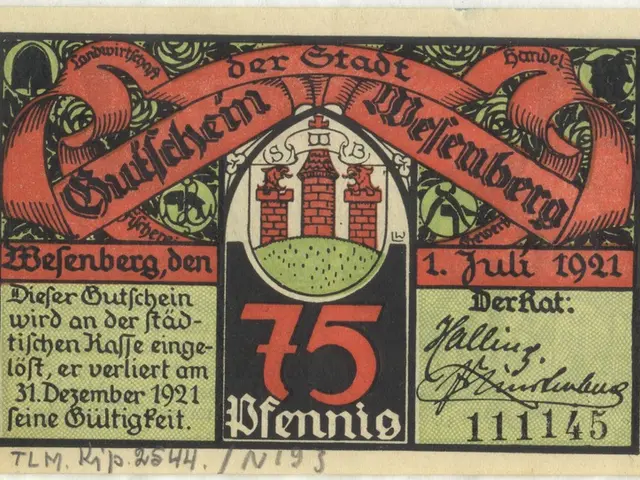Monitoring Crypto Transactions: India Cracks Down on Potential Terror Financing
Reinforced Cryptocurrency Regulation in Jammu and Kashmir, India, due to Security Apprehensions
In a bid to curb terror financing and money laundering activities, India has ordered crypto platforms to intensify surveillance of transactions originating from Jammu and Kashmir and other border regions. This directive comes from the Financial Intelligence Unit (FIU-IND) and focuses on flagging activity tied to "private wallets."
Note: Private wallets refer to non-custodial tools that allow direct peer-to-peer crypto transfers without oversight from exchanges or custodians.
Crypto exchanges in India have been instructed to monitor such flows as they could potentially be exploited to bypass formal banking routes, causing links to terror networks to go obscure. Furthermore, exchanges have been directed to prioritize transactions by users in border areas, even when there are no overt red flags.
The increased attention on crypto transactions isn't new. Mohith Agadi, founder of Fact Protocol, noted that authorities typically scrutinize crypto transactions for money laundering and terror financing. As tensions remain between India and Pakistan over Jammu & Kashmir, a region that remains a geopolitical flashpoint, intelligence agencies have increasingly kept a watchful eye on digital assets for potential financial abuse.
Fact Protocol is a decentralized fact-checking system.
The focus on private wallets and privacy coins like Monero and Zcash, however, adds a layer of complexity to enforcement efforts. According to an industry executive cited by The Economic Times, such transactions could evade trails that Indian law enforcement agencies can easily track, as they would not leave a trace once converted.
This tightened scrutiny comes following a landmark 2020 U.S. operation that seized over 300 crypto accounts, multiple websites, and millions of dollars tied to ISIS, al-Qaeda, and Hamas. While terror groups have exploited digital assets, the technology has also proved to often become their downfall. With the right tools and frameworks, it is possible to "strike a balance between privacy and security," using Web3 to combat terrorism rather than enabling it.
This regulatory push in India marks a broader trend as global law enforcement agencies intensify their scrutiny of crypto-funded terrorism. Just last week, a Virginia man was sentenced to 30 years in prison for funneling over $185,000 in crypto to ISIS via encrypted chats and in-person collections. The funds were routed through Turkey to support female ISIS members in detention camps, finance prison escapes, and aid militant operations across Syria.
The U.S. Department of Justice revealed the details of the sentence and operations related to the funding of ISIS.
While specific guidance on private wallets and privacy coins isn't detailed in the directives, the broader strategies by the FIU-IND, including registration and KYC requirements, STRs and CTRs, anti-money laundering (AML) and combating the financing of terrorism (CFT) infrastructure, and enhanced due diligence, set a regulatory framework that could indirectly impact the use of these assets. As the Indian government continues to tighten regulations to combat illicit activities, there may be a growing focus on ensuring that all crypto transactions—including those involving private wallets and privacy coins—adhere to strict AML/CFT standards.
Note: Aadhar, PAN, and other valid ID proofs refer to India's unique identification system, tax identification, and other recognized forms of identification.
Sources:
[1] https://www.thehindubusinessline.com/news/national/india-tightens-crypto-exchanges-surveillance-in-border-regions-to-fight-terror-financing/article32430481.ece[2] https://www.economictimes.com/news/politics-and-nation/india-tightens-crypto-screens-to-check-terror-financing-track-privacy-coins/articleshow/99561696.cms[3] https://www.bloombergquint.com/onweb/crypto-regulations-in-india-how-does-panama-paper-leak-impact-virtual-currency-industry[4] https://www.livemint.com/news/india/indias-digital-rupee-what-is-it-when-will-it-be-launched-and-will-fiu-ind-verify-it-11636888475099.html[5] https://www.downtoearth.org.in/news/technology/grand-old-fiat-vs-digital-fiat-why-india-must-embrace-crypto-currency-79461
- The increased scrutiny on private wallets in India, including those used for privacy coins like Monero and Zcash, could evade trails that law enforcement agencies can easily track, as these transactions would not leave a trace once converted to other cryptocurrencies.
- The focus on private wallets and privacy coins adds complexity to enforcement efforts, as these digital assets offer a level of privacy that could potentially be exploited by terror groups or money launderers.
- As part of its strategy to combat terror financing, the Financial Intelligence Unit (FIU-IND) in India has ordered crypto platforms to monitor transactions from private wallets, particularly those originating from Jammu and Kashmir and other border regions.
- Crypto exchanges in India have been directed to prioritize transactions by users in border areas, even when there are no overt red flags, as such flows could potentially be exploited to bypass formal banking routes and obscure links to terror networks.
- With the right tools and frameworks, it is possible to use Web3 technology to combat terrorism, rather than enabling it, by ensuring that all crypto transactions, including those involving private wallets and privacy coins, adhere to strict Anti-Money Laundering (AML) and Combating the Financing of Terrorism (CFT) standards.
- The broader strategies by the FIU-IND, including registration and KYC requirements, STRs and CTRs, anti-money laundering (AML) and CFT infrastructure, and enhanced due diligence, set a regulatory framework that could indirectly impact the use of privacy coins and private wallets in crypto transactions.








